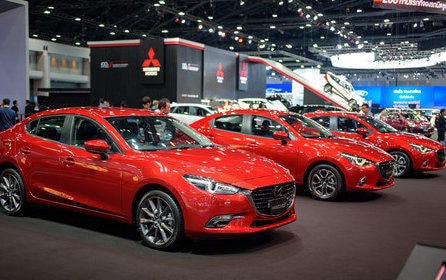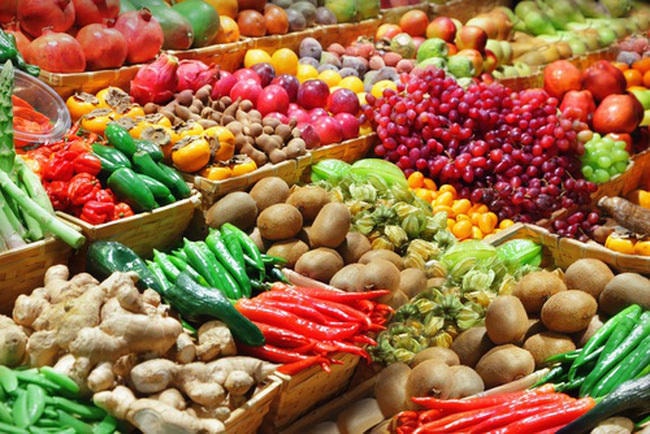2018: Many items are surprisingly cheap when tax is 0%
According to the integration commitment between countriesASEANTariff barriers will be completely eliminated on many products such as cars, motorbikes; auto and motorbike spare parts and components; food; tropical fruits from January 1, 2018.
Massive tax reduction on consumer goods
Consumers still expect car prices to decrease when the import tax rate is reduced to 0% from January 1, 2018 for cars imported from ASEAN countries, when the ASEAN Free Trade Area Agreement (AFTA) takes effect. Regarding cars, Thailand and Indonesia are currently the leading markets in ASEAN in terms of the number of cars imported into Vietnam.
In 2017, import tax on automobiles in ASEAN was 30%, and will be reduced to 0% from 2018. For pickup trucks, import tax was 15% in 2017 and will also be reduced to 0% after 2018.
Besides automobiles, a series of essential goods such as motorbikes; auto and motorbike spare parts and components; food; tropical fruits; refrigerators; air conditioners; milk and dairy products;... will also have a tax rate of 0%.
 |
| Import tax on cars from ASEAN countries will be 0% from January 1, 2018. |
According to Mr. Tran Ba Cuong - Head of ASEAN Department, Multilateral Trade Policy Department (Ministry of Industry and Trade), in 2018, there are still many products that can have their tariffs reduced or eliminated. In particular, Vietnam will completely eliminate import tax rates for 669 tax lines from January 1, 2018.
“These items include cars, motorbikes; spare parts and components for cars and motorbikes; food; tropical fruits; refrigerators; air conditioners; milk and dairy products;… When the tax is 0%, people will benefit because they can buy cheap goods,” said Mr. Tran Ba Cuong.
According to Mr. Cuong, the question is whether domestic producers can compete with imported goods from ASEAN. Regarding milk and dairy products, countries in the region do not have the same strength in milk as Vietnam because Vietnam's climate is more ideal for dairy farming. However, this does not mean that countries in the region do not have milk to sell to Vietnam.
“Instead, they can completely import raw milk from Australia or New Zealand and ensure a 40% rate according to the rules of origin between ASEAN countries to enjoy 0% tax,” said Mr. Tran Ba Cuong.
Thousands of goods will enter Vietnam with 0% tax thanks to ACFTA
In addition to the items expected to see price reductions when import tax rates on goods from ASEAN countries are reduced to 0%, a series of other items will also enjoy special preferential tax rates under the ASEAN-China Free Trade Agreement (ACFTA).
According to the commitment when joining ACFTA, Vietnam committed to eliminating tariffs on 90% of tax lines within 10 years, flexibly until the final roadmap in 2018. Vietnam committed to cutting the remaining tax lines from 5% to 50% by the end of the roadmap in 2020.
Meanwhile, China committed to eliminating tariffs on 95% of tariff lines by 2011. China committed to cutting the remaining sensitive tariff lines by 5% to 50% by the end of the roadmap in 2018.
To enjoy special tax incentives, goods from countries must have a certificate of origin (C/O) as prescribed by the Ministry of Industry and Trade. Accordingly, thousands of goods originating from ACFTA countries will be subject to a 0% tax rate when exported to Vietnam and vice versa.
 |
| Many agricultural products will also have 0% import tax. |
Specifically, in terms of agriculture, live animals such as buffalo, cows, pigs, live horses, sheep, goats, chickens, ducks, geese, etc. used for breeding. All types of buffalo, beef, pork, fish (except fish fillets) and many other types of frozen seafood such as shrimp, crab, etc. are exempted from tax.
In addition, there are dairy products, poultry eggs, honey and ivory, shells, horns, claws, corals, and beetles.
Potatoes, root vegetables, tomatoes, onions, garlic, leeks, cabbage, cauliflower, kohlrabi, kale, lettuce, carrots, turnips, beans, asparagus, eggplant, celery, mushrooms, peppers, spinach, squash, corn, cucumbers, sliced cassava, sweet potatoes.
Fruit trees include almonds, coconuts, walnuts, pistachios, macadamia nuts, bananas, dates, pineapples, avocados, guavas, mangoes, mangosteens, oranges, tangerines, lemons, grapefruits, watermelons, apples, pears, quinces, apricots, peaches, cherries, plums, raspberries, strawberries, durians, persimmons, blueberries, longans, lychees, rambutans, rambutans, jackfruit, tamarinds, etc.
Coffee, tea, spices, ginger, saffron, corn (except for roasted rice which is taxed at 5%), rice, brown rice (except for Thai Hom Mali rice which is taxed at 20%), wheat flour, other cereals… are all taxed at 0%.
Edible oil from peanuts and palm oil, sunflower seeds, coconut oil, cakes, and preparations from vegetables and fruits. Beverages, alcohol, carbonated water (except beer, wine, and fermented alcohol with a 5% tax), animal feed for poultry and pigs are subject to a 5% tax until 2018, when it will be reduced to 0%.
For cars, the tax schedule is significantly different. Accordingly, cars with 30 or more people used in airports are taxed at 20% until 2018. Passenger cars designed from 6-18 tons are taxed at 50% in 2018.
Motorcycles of all types are taxed at 45%, however some specialized types will be reduced to 0% in 2018. Meanwhile, aircraft, spacecraft, ships, boats, fishing boats, yachts or medical materials are immediately taxed at 0%.
According to Dan Viet
| RELATED NEWS |
|---|

